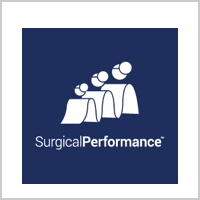HOW DO I MAKE AN APPOINTMENT?
Please call (08) 6406 1801 or send us an email: reception@wagynaescope.com.au
Do I need a referral?
In order to claim a rebate from Medicare it is required to have a referral from either your GP or another specialist. The GP referral is valid for 12 months from the date of your first consultation. If your referral is from a specialist it is only valid for three months.
What do I need to bring to the consultation?
Copy of your referral letter if you have one
Medicare card
Private health fund card
Letters from any previous doctors that have dealt with the same issue (if available)
Previous operation reports/photos that you were given in the past
Results of any ultrasounds or special investigations
Blood test results
What if my problem is related to my bladder or prolapse?
Please complete a THREE-DAY bladder diary that is found under the Menopause section information pamphlets.
Come with a FULL BLADDER and resist the urge to void before your consultation.
Please bring any urodynamic reports that you may have had.
What if have my period?
If you have been referred for an abnormal pap smear please try and see us when you are not having your period. If you have any personal preferences in this matter please feel free to reschedule your appointment.
How long do I have to wait for an appointment?
We will endeavour to have you seen at the first available opportunity. However if your GP feels that the matter is urgent, please have him call us or mark your referral URGENT. Our waiting time is usually 2-4 weeks.
Do I need private insurance?
Yes, we accept patients who have private health insurance or patient who are considering self funded management options. Please check with your insurer if “Hospital Cover”. Our staff will be happy to answer any further questions.
What is the cost of a consultation?
Initial consultations: $270 (1 October 2023)
Follow-up consultations: $150 (1 October 2023)
These costs do not include any extra procedures that may be done during your consultation e.g. endometrial biopsy/ colposcopy etc.
Medicare rebates apply. Applies to INSURED (PRIVATE) and UNINSURED (PUBLIC) patients.
Can you claim from Medicare on my behalf?
Yes, we will submit your claim to Medicare for a prompt rebate.
Do you have EFTPOS facilities?
Yes, we accept EFTPOS transactions by all major debit and credit cards as well as cash.
How long is an appointment?
Depending on your situation, consultations can range from 20 to 45 minutes. In certain complex cases we will suggest that the consultation be continued at a follow-up appointment to optimise your care.
What about parking?
The Joondalup Health Campus has ample parking facilities with a ticket system. Please be aware that the traffic wardens are quite active in the parking lot.
WHERE DO I FIND THE ONLINE ADMISSION FORMS FOR JOONDALUP PRIVATE HOSPITAL?
Please visit this link to complete the Admission forms before your operation:
http://www.joondalupprivate.com.au/For-Patients/Online-Admission-Form
HOW DO I PREPARE FOR MY LAPAROSCOPIC SURGERY?
Some patients will be asked to follow some instructions to have a low residue/fiber diet for the last 5 days before their surgery. This is to help the bowel empty and help with the surgery. A copy of the information will be available at our office or under the "Resources" tab on our website.
We would also like you to drink about 300ml of Powerade no later than 6 hours before your scheduled surgical time. Do not eat or drink anything after this time. This will help you with recovery.
Please bring your "recovery bag" to hospital as this has handy items like ear plugs and a sleeping mask. Chewing gum during your recovery will also help your gut to get going again.
WHat are some of the risks associated with laparoscopic surgery?
NEW: Australasian Gynaecological Endosopy and Surgery (AGES) VIDEO about Resection of Endometriosis
Although we take every precaution to get you through the surgery safe and sound, no surgery is without risks. Please take a moment to have a look at the following information as you prepare for your surgery. A general principal is that the risk of complications depend on the complexity of the operation.
While it is not practical to discuss every possible complication of surgery during the consent process, the following list covers the main potential risks and complications associated with any form of surgery:
Risks associated with general anesthesia
Wound infection
Bleeding- at entry wound or at the site of surgery
Blood transfusion - if bleeding is severe and life-threatening, blood transfusion may be required. NOTE: If you are against blood transfusion, you must make this clear in writing to the surgeon and anaesthetist and nursing staff before consenting for surgery.
Incisional or port site hernias(1.9-3.2%)
Blood clots – Deep vein thrombosis or pulmonary embolism
Injury to abdominal wall blood vessels
Injury to internal abdominal and pelvic organs: bowels(0.3-0.18%), bladder(0.5%), ureter(0.04-0.2%), blood vessels(0.01%). This may occur during surgery or may present some time after surgery. These complications may mean further surgery for correction of the injury. In the case of a bladder or ureter injury, this may mean the use of an urinary catheter. In the case of bowel injury, this may result in leakage of bowel contents, peritonitis, septicaemia. Corrective surgery for bowel leakage may require the use of diversion of bowel contents to external bag (ileostomy or colostomy), and re-operation later on.
Risk of delayed injury to organs e.g. thermal damage only becoming evident later during the recovery.
Conversion to open surgery (laparotomy) in case of unexpected life-threatening complications or findings such as malignancy.
This information is not meant to make you nervous but due to the complex nature of some of the surgeries we do, it is made clear in the interest of informed consent and for you to partner with us in the decisions going forward.
Table of complications and management strategies: HERE
What if i think i may have a problem after my surgery?
In general, normal recovery means you should feel gradually better each day. If you have any of the following symptoms- please inform us urgently:
Fever (greater than 38°)
Increasing abdominal pain
Nausea and vomiting
Increasing or heavy vaginal bleeding
Increasing tenderness and redness at the wound sites
Increasing unwell feeling
Contact our rooms during office hours. After hours: Please phone Ward H1 at the Joondalup Private Hospital (9400 9200) and ask to talk to the Shift Coordinator.
When will my post-operative follow-up appointment be?
Usually we will see you within two weeks of your surgery but please give us a call if you have any concerns.







